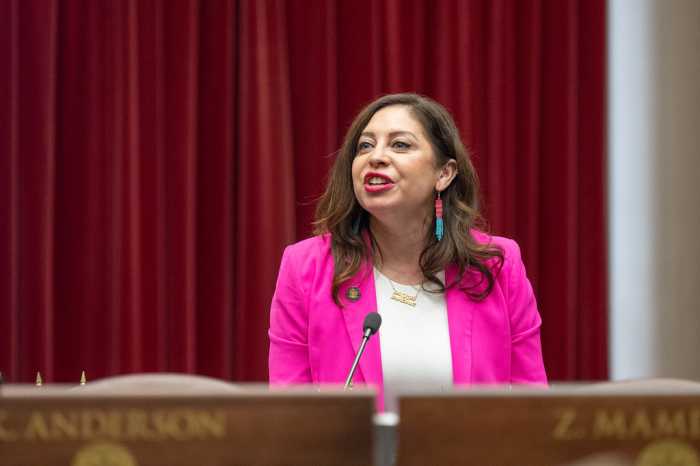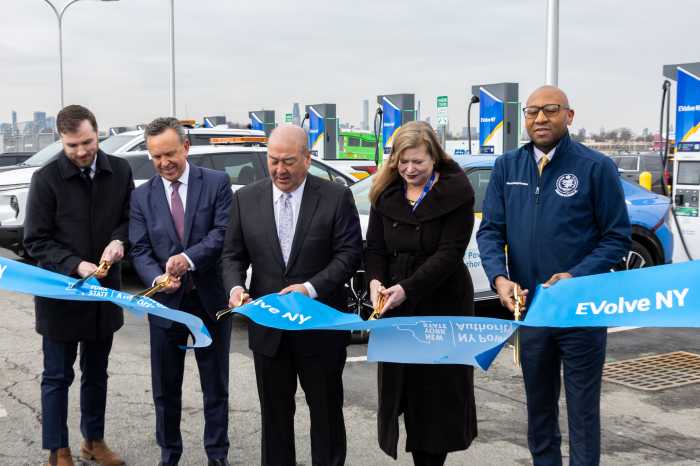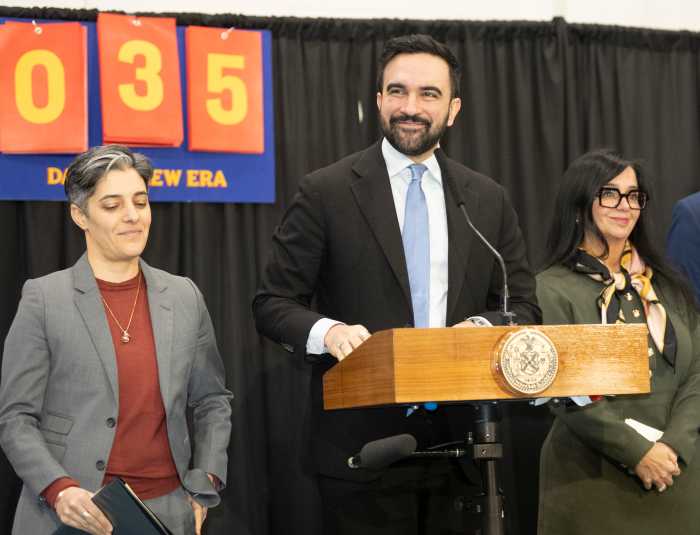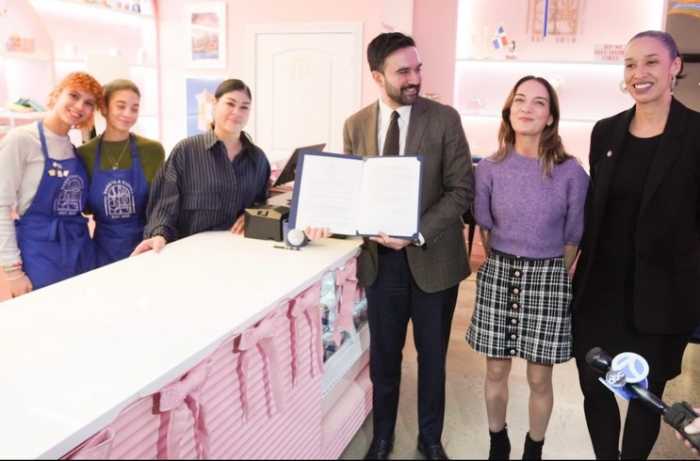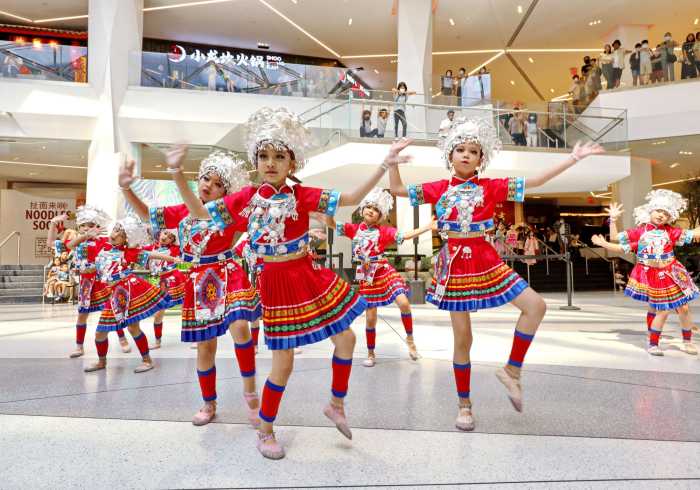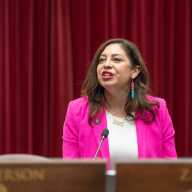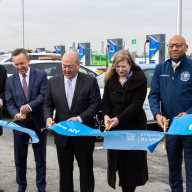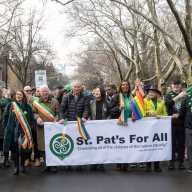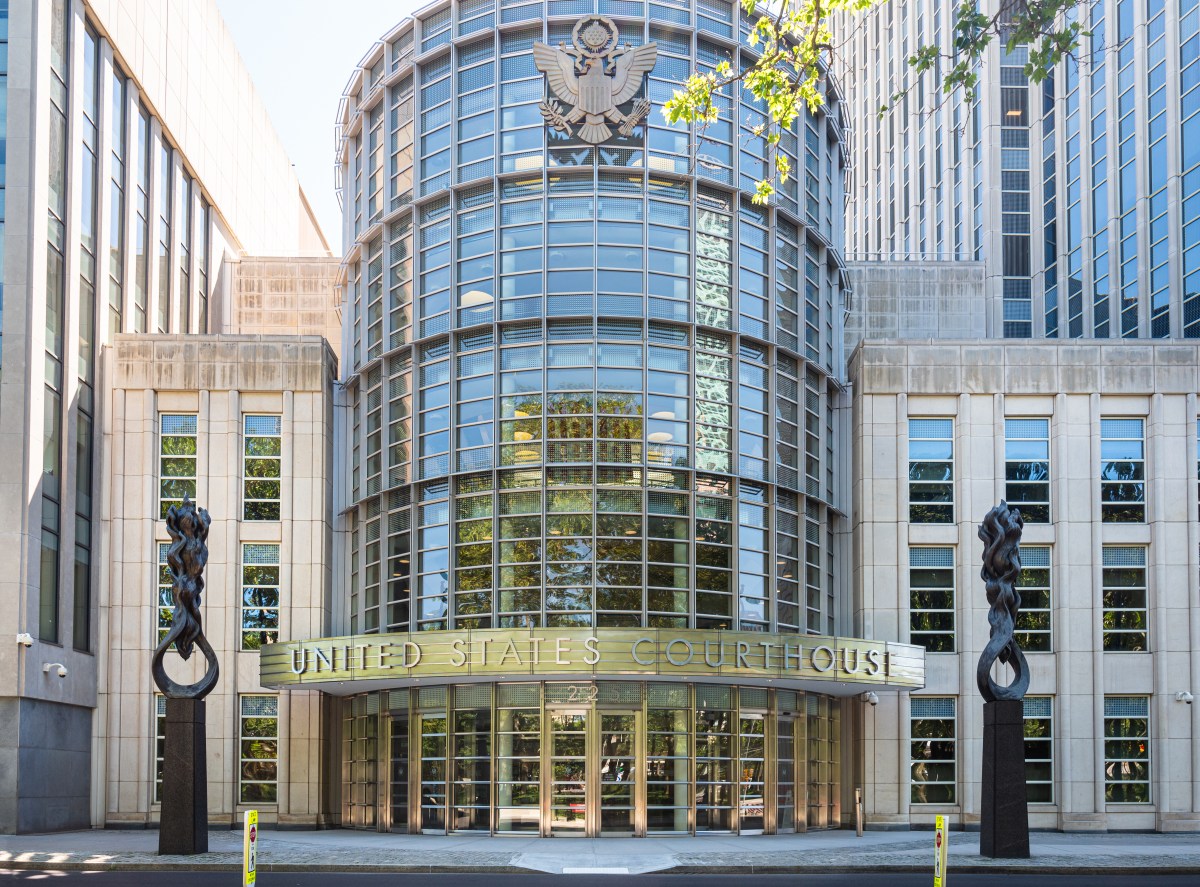More than three dozen Queens residents gathered at Rufus King Park in Jamaica to launch NYC Democratic Socialists of America’s (NYC-DSA) campaign for “Public Power” on Saturday, April 10.
NYC-DSA’s “Public Power” campaign aims to put New York’s energy system in control of the public rather than corporations like Con Edison and National Grid. To do that, the coalition is advocating for two bills, the N.Y. Build Public Renewables Act (NYPBRA) and the N.Y. Utility Democracy Act (NYUDA).
Saturday’s rally — one of several that took place in Brooklyn and the Bronx — featured multiple speakers, including DSA member Nolen Scruggs, City Council District 23 candidate Jaslin Kaur and a representative of City Council District 22 candidate Tiffany Cabán, as well as Rockaway Revolution organizer Marva Kerwin and local Black Lives Matter activist Larry Malcolm Smith Jr.
Scruggs, a resident of Ozone Park, said that having a publicly owned energy system would lead to a more accountable and fair power distribution.
“We’re here today because for too long, our government and elected officials have prioritized the pockets and profits of millionaires and billionaires over the energy needs of every day New Yorkers,” Scruggs said. “With public power that would come to an end.”
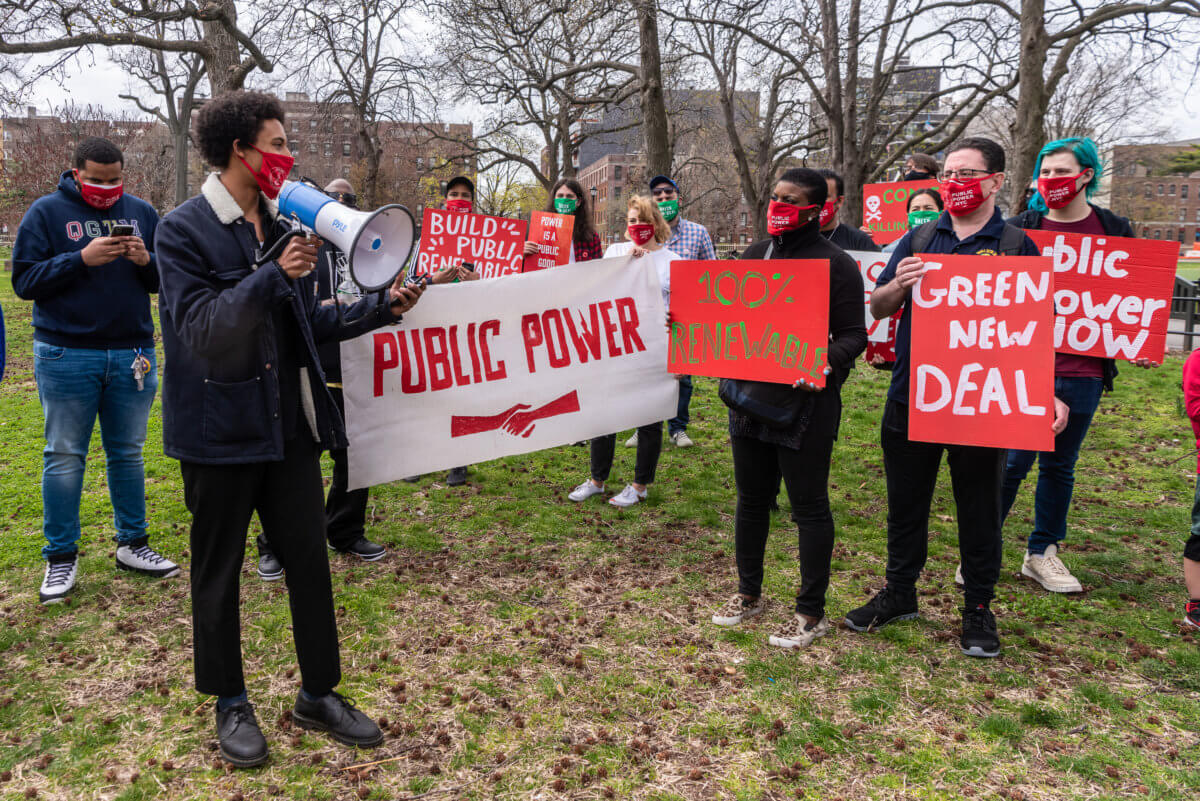
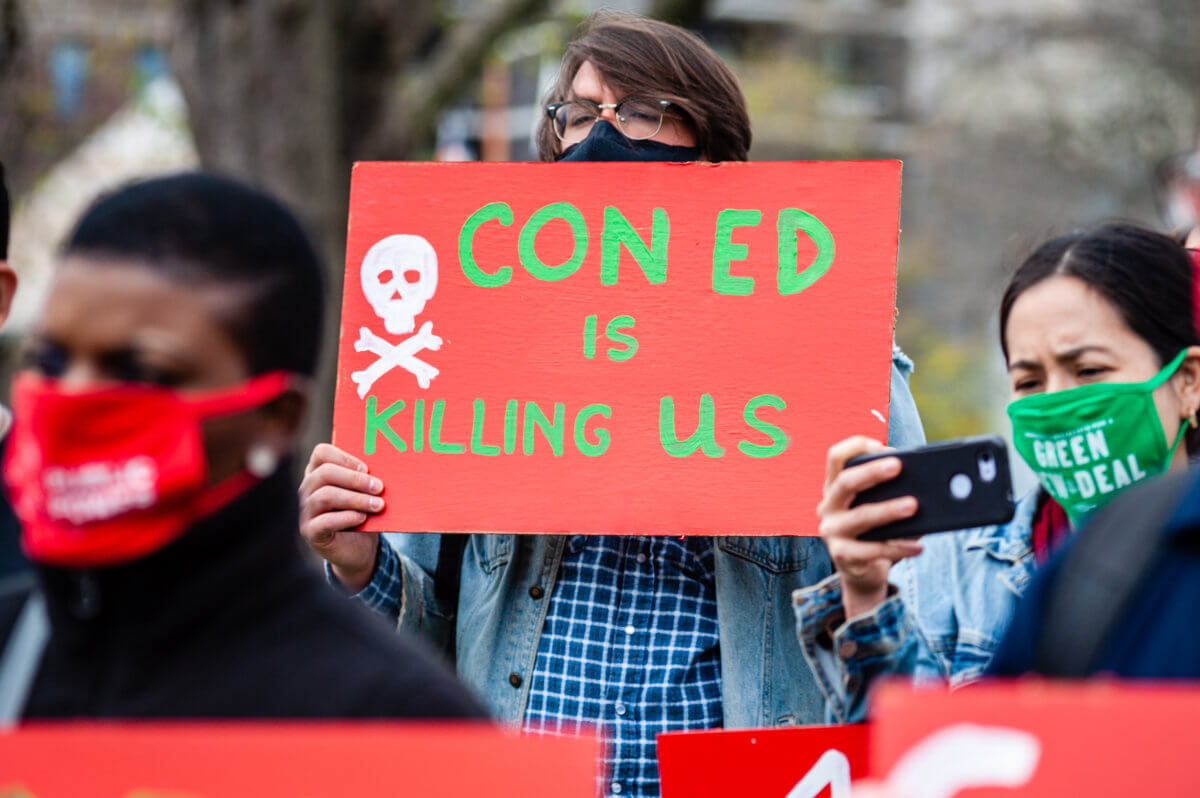
The NYBPRA would require the New York Public Authority to fully transition to renewable energy and expand its scope to sell clean energy directly to residential customers, banning for-profit rates and shut-offs. The bill is primarily sponsored by Brooklyn Assemblyman Robert Carroll, and currently co-sponsored by several Queens Assembly members including Zohran Mamdani, Catalina Cruz, Ron Kim, Brain Barnwell, Alicia Hyndman and Khaleel Anderson.
The NYUDA, sponsored by Astoria Assemblyman Zohran Mamdani and Brooklyn state Senator Julia Salazar, would require all of the state’s utilities to transition into public ownership within two years and create democratically elected boards to oversee distribution operations.
Mamdani, who wasn’t able to attend the rally as he was traveling to Albany, said that private energy companies can currently “prioritize their profits over our lives.”
“In Astoria, this looks like Con Ed rate hikes and additional fees for not switching to smart meters. It looks like NRG trying to build more fracked gas infrastructure when our neighbors have said that our lungs and our planet don’t need any more dirty energy. It looks like energy shut-offs in the dead of winter for our neighbors,” Mamdani told QNS. “Enough is enough. It’s time for a democratized energy system that’s accountable to us — that’s why I’m proud to support public power.”
At Saturday’s event, Kerwin, a Far Rockaway resident, said her home was ravaged by Hurricane Sandy, leaving many like her and her family homeless due to power outages.
“If we need something to live, the cost should not be on our backs,” Kerwin said. “We have to have the courage to ask for more. We deserve maintenance over profits. We deserve proper infrastructure. We deserve our power to work whether it’s cold, hot or stormy. I should not live in a brownout home.”
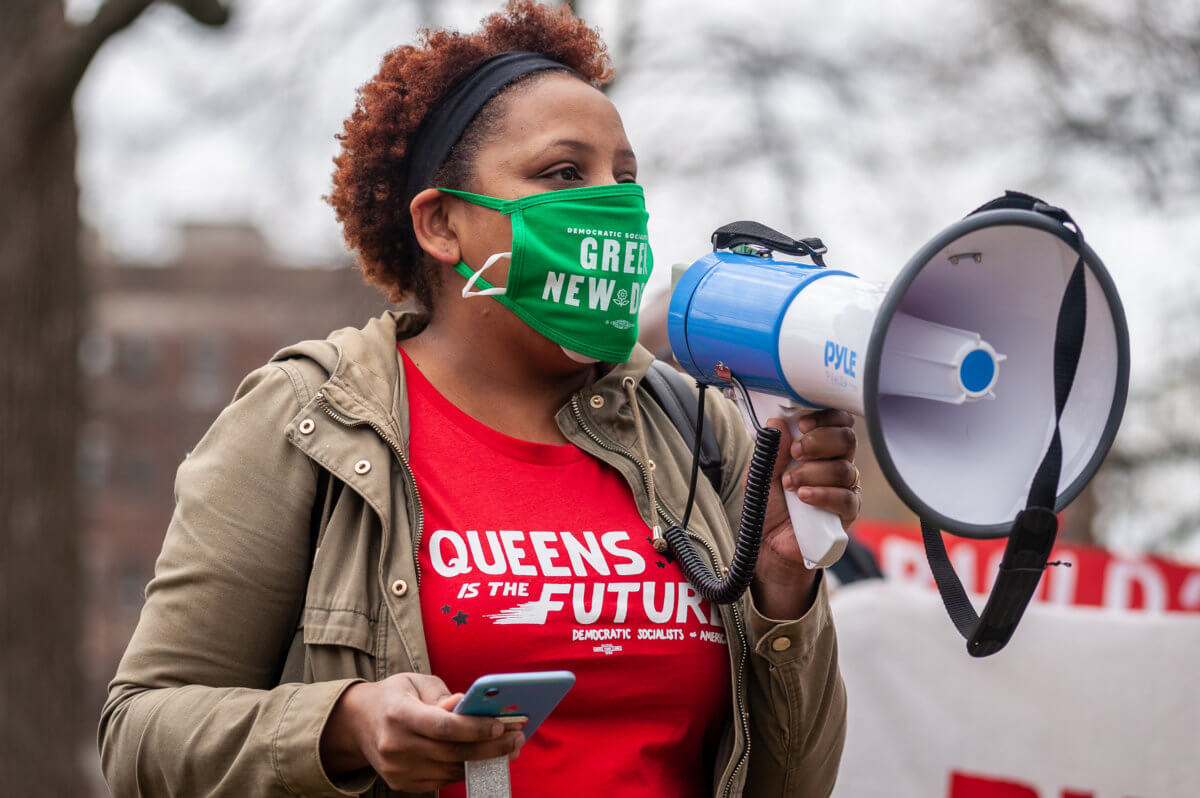
Kaur said that while City Council District 23, currently represented by Barry Grodenchik, received a perfect score on the New York League of Conservation Voters’s Environmental Scorecard, equitable treatment doesn’t trickle down to every person in the district.
“As soon as you cross Hillside Avenue and Jamaica Avenue, you see a different reality for the way people in my district live, and those are the people we’re fighting for,” Kaur said.
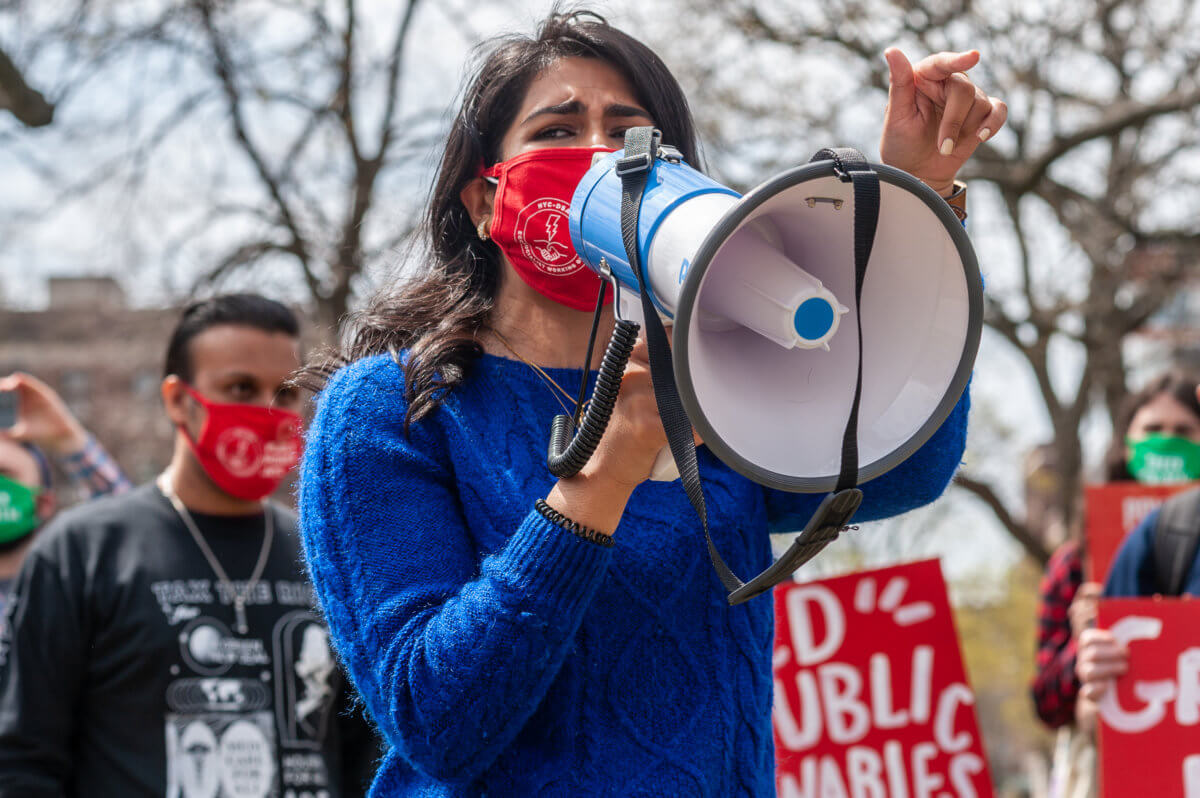
Advocates also point to corporate utility companies’ use of fossil fuels and how it’s led to damaging climate effects like extreme heat waves and storms that trigger blackouts, and how the COVID-19 pandemic has exacerbated the state’s indebted utilities system.
Kaur said she doesn’t want to continue talking about expensive Con Ed bills; she wants a solution, “and that is public power.”
“We get that with a Green New Deal for public housing, making sure these buildings are climate-resilient, hiring union labor, hiring local and making sure that our city can continue to have a future that is certain, livable and green because that is what we deserve,” Kaur said. “Our public utilities are not a commodity, and neither are our people.”


